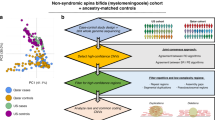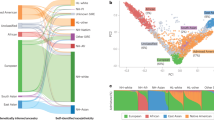Abstract
Within the realm of medical care, Self-Identified Race and Ethnicity (SIRE) categories are promoted as an inexpensive tool to identify underlying genotypic diversity. Scientific opinion is divided about the adequacy of SIRE to serve this function. If genetic diversity can guide medical decisions, it is important to know the effectiveness of genetic screening via SIRE. Proper development of self-reported measures such as SIRE requires sensitivity and specificity studies. These types of formal evaluation are largely absent for SIRE. To begin this formal process, we estimate the sensitivity of SIRE in screening for variant Single Nucleotide Polymorphism (SNP). Our results indicate that the current use of SIRE is inadequate to screen for selected biotransformation related SNP in the N-Acetyl Transferase pathway. The widespread usage of SIRE to screen for genotypic diversity could promote erroneous assignment of patients to disease risk or therapeutic categories.
Similar content being viewed by others
Article PDF
Author information
Authors and Affiliations
Corresponding author
Rights and permissions
About this article
Cite this article
Miles, T., Hanson, S., Kidd, L. et al. Sensitivity Analysis of Self-Identified Race and Ethnicity (SIRE): Screening for Single Nucleotide Polymorphisms.. Nat Prec (2008). https://doi.org/10.1038/npre.2008.1524.1
Received:
Accepted:
Published:
DOI: https://doi.org/10.1038/npre.2008.1524.1



